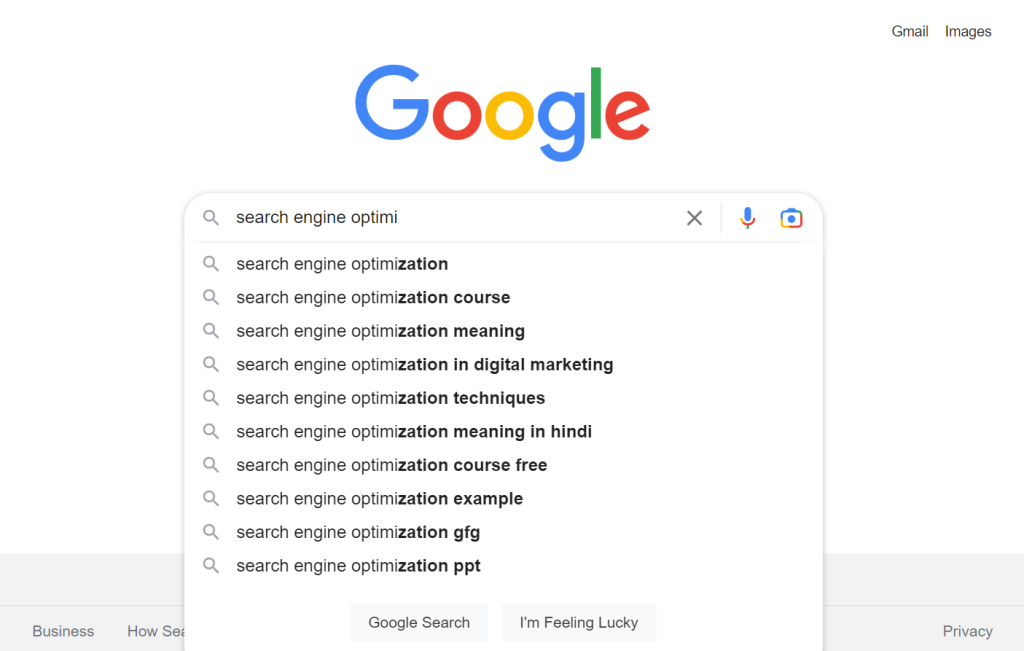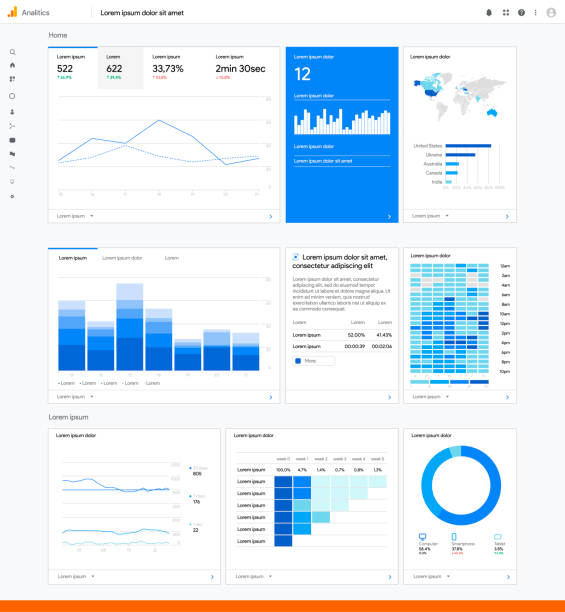Are you looking to take your online presence to the next level? Crafting the perfect SEO marketing strategy is a great way to accomplish this goal. With the right approach, you can optimize your website to rank higher in search results, drive more traffic to your site, and ultimately increase your sales.
This step-by-step guide will provide you with the tools and strategies you need to create an effective SEO plan and make sure that your website is visible to the right audience. From keyword research to link building and content optimization, this guide will help you create a comprehensive SEO strategy that will help you reach your goals. Read Google’s 8 best practices For ecommerce SEO sites.
What is SEO and why is it important?

Search engine optimization (SEO) is the process of improving your website’s online presence so that it ranks higher in search results. This can be done through a variety of methods, including optimizing your content, selecting the right keywords, and building quality backlinks to your site.
To simplify things, SEO can be thought of as the art of getting your website noticed on search engines like Google, Bing, Yahoo, and others. The goal is to get your site to appear at the top of search engine result pages (SERPs) to drive more organic traffic to your site.
An effective SEO strategy can help you generate more leads and earn more revenue from your website. Organic traffic from search engines is generally considered to be of higher quality than other sources of traffic, like social media or paid advertisements. This means that people who come to your site through search engines are generally more engaged than visitors who come from other sources.
One of the best ways to execute a programmatic SEO for startups is by focusing on long-tail keywords, regularly publishing fresh and high-quality content, and building backlinks from reputable websites. This is especially true when you’re considering long-tail keywords that are more specific and search engines are less likely to display ads next to these terms.
How to do keyword research

Keyword research is an essential step in the SEO process and it’s something that you should be doing well before you start creating content. By conducting keyword research, you can discover what terms and phrases people are using to search for products and services similar to yours.
This allows you to identify which keywords you want to target and create content around them. It’s important to note that not all keywords are created equal. Some will be easier to rank for and generate more traffic than others.
The best way to find high-quality keywords is to use a keyword research tool. There are a number of excellent keyword research tools available like the Google AdWords Keyword Planner or the Moz Keyword Explorer.
These tools will walk you through the process of researching keywords and selecting the best ones to include in your SEO strategy.
Crafting Quality Content and Optimizing it for SEO

The next step in your SEO strategy is to create high-quality content that your audience will find both useful and interesting. A good rule of thumb is to create one piece of content for every keyword that you want to rank for. This might seem like a lot, but it’s important to remember that quality content takes time to create.
You can speed up the process by repurposing existing content, like blog posts and guides, to use as new content. You can also consider outsourcing the creation of additional content to save yourself some time.
When it comes to optimizing your content, the first thing you’ll want to do is to make sure that it’s properly cited. This means that you should include the author’s name, article title, and publication details at the top of your article.
You should also make sure that you include your target keyword in the first sentence of every paragraph throughout your article. This helps to reinforce your target keyword and will help to drive more traffic to your site.
Link Building Strategies

After you’ve created and optimized your content, you’ll want to start looking for places to link to your site. You can find link-building opportunities in a number of different places, including:
- Bloggers and influencers in your industry who might be interested in publishing a guest post on their blog
- People who are interested in linking to your content
- Interest groups and forums that allow you to post links to your site
- Local business and community boards
- Your offline network and friends/family
- Your social media presence
- Your email list As you can see, there are a variety of places where you can link to your site and start to build up your SEO.
- You should focus on linking to high-quality authority sites that are relevant to your business. Avoid linking to low-quality or spammy websites, as these can actually hurt your SEO efforts. If you want to link to another website, you’ll want to make sure that you use no-follow links. This tells search engines that the link is not a vote of confidence for that website. No-follow links are usually used when you’re linking to websites that you don’t own, like Wikipedia. Google confirms the importance of backlinks strength in its algorithm, as it is a way to measure the credibility and trustworthiness of a website. The more high-quality backlinks a website has, the higher it is likely to rank in search engine results.
See also: 15 B2B Digital Marketing Trends 2023
Local SEO and Optimizing Your Site for Mobile

As you’re creating and optimizing your website, make sure that you’re also paying attention to local SEO. Local SEO is a subset of SEO that helps your website rank higher in search results for nearby customers. With more people conducting searches on mobile devices, optimizing your website for mobile devices is also important. Fortunately, there are a number of ways that you can optimize your site for mobile, including:
- Optimizing your website’s design and layout
- Creating mobile-friendly content
- Utilizing schema markup
- Utilizing local SEO tools If you want to improve your local SEO, you’ll want to make sure that your website is mobile friendly. You can use tools like Google Mobile Friendly or SEMrush to test your website and see if it’s mobile-friendly or not. If it’s not, you’ll want to fix this as soon as possible. If you want to improve your local SEO, you’ll want to make sure that you’re using schema markup.
How to Monitor and Track Your SEO Performance
The most important thing to do after you’ve put together an effective SEO strategy is to track your results and make adjustments as necessary. There are a number of ways that you can do this, including:

- Using Google Analytics
- Using Google Search Console
- Using a third-party tool like SEMrush
- Hiring a third-party agency to help you manage your SEO results It can be difficult to track your SEO results manually, so it’s best to use an all-in-one approach like Google Analytics to track your SEO performance. Google Analytics allows you to track website traffic, keyword rankings, and a whole bunch of other data points that will help you determine if your SEO strategy is working. It’s also important to stay up-to-date with the latest SEO trends and changes. New algorithms are released frequently, and it’s likely that your SEO strategy will need to be updated to account for the changes.
SEO Tools and Resources to Help You Get Started
There are a number of different tools and resources available that can help you to get started with creating an effective SEO strategy. Here are a few that we recommend:
- Moz – This is a great place to start if you’re new to SEO and want to learn the basics.
- SE Ranking – This is a great tool for tracking the progress of your SEO efforts and seeing how your competitors compare.
- SEMrush – This is a powerful SEO monitoring tool that offers a ton of useful data.
- Ahrefs – Ahrefs can be used for utilizing its keyword research and analysis features. It allows users to identify relevant keywords and phrases for their content, track their rankings, and also to analyze the content of the top-ranking pages for a specific keyword to understand the language and topics that are more likely to rank well.
- Word Tracker – Use this tool to get keyword ideas and find related terms.
- Google AdWords Keyword Planner – Use this tool to find keyword ideas and discover which terms have the most searches.
- Scalenut AI (Best For SEO & SaaS Writing) -Scalenut is a content intelligence SaaS platform that helps you discover and create the most relevant content for your customers.
- Surfer For SEO – If you’re looking to boost your organic traffic, increase your visibility, and improve your rank in search engines, then Surfer is the tool for you. This SEO workflow tool provides a comprehensive solution to help you optimize your website and content for search engines.
- Jasper (Best for SEO Writing – Jasper is an AI content writing tool that will make your life easier by creating well-written and informative content for you.
- Writesonic (Best AI Writing For All Campaign) – Writesonic is an AI content writing tool that can help you create better, more engaging content. Writesonic uses natural language processing and machine learning to understand your topic and audience, so it can help you write more effectively.
See also: 10 New AI Content Writing Tools That Will Make Your Life Easier
SEO Best Practices to Follow
Now that you understand the basics of creating an effective SEO strategy, it’s important to keep these best practices in mind. These will help you to create a winning SEO strategy, no matter what type of business you operate and how many resources you have.
Remember that SEO is a long-term strategy. It can take years to build up your website’s organic traffic, so be patient and consistent as you work towards your goal. Now that you know all about creating an effective SEO strategy and you have the tools you need to do so, it’s time to put your knowledge to use.
10 Tips to Create an Effective SEO Strategy
- Conduct keyword research: Keyword research is the process of identifying the keywords and phrases that your target audience is searching for in relation to your products or services. By understanding what people are searching for, you can optimize your website content to include these keywords and phrases, making it more likely that your website will appear in search engine results. This can be done using tools like Google Keyword Planner, SEMrush, Ahrefs, and more.
- Optimize your website: To optimize your website for search engines, you should ensure that it is properly structured and easy to navigate. This includes using meta tags, header tags, and alt tags to provide information about the content of your website to search engines. Additionally, using a clean and well-organized layout, and having a fast loading website, can also help improve your search engine rankings.
- Create high-quality content: High-quality content is essential for an effective SEO strategy. It should be informative, engaging, and valuable to your target audience. It should also be optimized for search engines by including relevant keywords and phrases. By providing valuable content, you can attract more visitors to your website, increase your website’s authority, and improve your search engine rankings. Additionally, it’s important to track the right metrics to measure the success of your content marketing efforts. 8 Content Marketing Metrics You Should Know About include engagement rate, bounce rate, conversion rate, traffic, shares, backlinks, lead generation and ROI.
- Build backlinks: Backlinks are links from other websites that point to your website. They are an important factor in determining your website’s search engine ranking. By obtaining backlinks from reputable websites, you can improve your website’s authority and credibility, making it more likely to appear in search engine results.
- Use social media: Social media platforms can be a powerful tool for promoting your website and engaging with your target audience. By sharing links to your website on social media, you can increase the visibility of your website and attract more visitors. Additionally, by engaging with your audience on social media, you can build a community around your brand and improve your website’s search engine rankings. The future of social media marketing is all about being more personal, authentic, and interactive with the audience. The use of real-time videos, live streaming, interactive polls, augmented reality, and interactive stories are expected to be more prevalent as they help to build a more personal connection with the audience.
- Optimize for mobile: With more and more people using mobile devices to browse the internet, it’s essential to make sure your website is mobile-friendly. This means that your website should be easy to navigate and read on a mobile device. By optimizing your website for mobile, you can improve the user experience for mobile visitors and improve your search engine rankings.
- Use alt tags for images: Alt tags are used to describe the content of an image to search engines. By including alt tags for images on your website, you can make your website more accessible to people with visual impairments and improve its search engine ranking.
- Utilize analytics tools: Analytics tools such as Google Analytics can provide valuable insights into how people are interacting with your website. By tracking your website’s performance, you can identify areas for improvement and make data-driven decisions to improve your search engine rankings.
- Create a sitemap: A sitemap is a file that lists all the pages on your website. By creating a sitemap, you can make it easier for search engines to crawl and index your website, improving its search engine ranking.
- Stay up to date with SEO best practices: SEO is an ever-evolving field and it’s essential to stay up to date with the latest best practices to ensure your website remains effective. This includes keeping track of changes in search engine algorithms and staying informed about new SEO techniques and strategies. By staying up to date with SEO best practices, you can improve your website’s search engine rankings and stay ahead of your competitors.
See also: 21+ Digital Marketing Strategies to Boost Your Catering Business
SEO Services You Can Outsource
If you don’t have the time or resources to manage your SEO strategy, you can always outsource this to a professional. There is a variety of SEO companies and agencies that can help you improve your website’s visibility and rankings in search engine results. They can handle tasks such as keyword research, content optimization, link building, and analytics tracking. However, it’s important to choose a reputable company or agency that aligns with your business goals and budget.
Outsourcing your marketing is a great way to save money and gain more time. This allows you to focus on the important parts of your business and let someone else do the work. You can outsource SEO services which are a vital part of your marketing plan. Hire an SEO company to help your business grow and stay ahead of the competition.
Closing Thoughts
Nowadays, it is becoming harder and harder to rank high on search engines like Google. There are many different factors that make it so that you may not be able to rank at all or rank well. If you want to find success with your SEO strategy, you will have to focus on creating content that is unique, relevant, and has a chance of being shared.
Focus on creating content that is related to your target audience. It is also important that you use keywords in your content that are relevant to what you are writing about. You can also use keywords in your title, URL, and meta description. By using these strategies, you will be able to find success with your SEO strategy.

